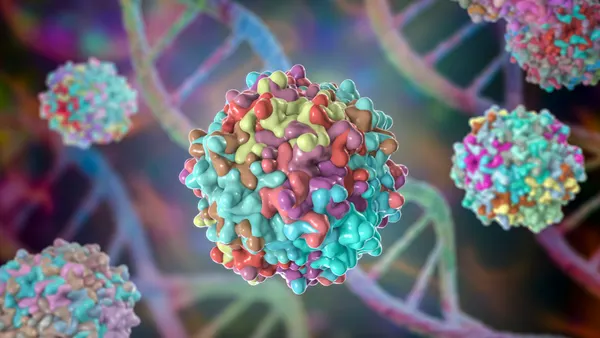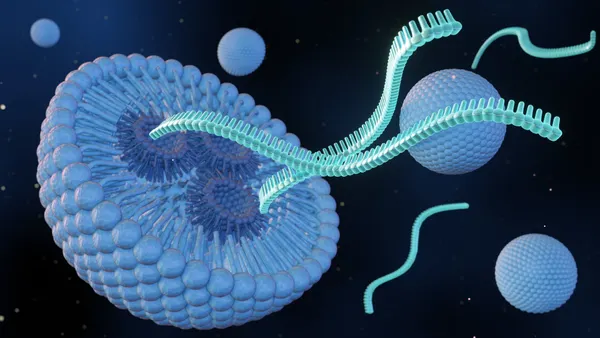Dive Brief:
- Shares in gene therapy developer Neurogene fell by more than 40% Tuesday after the company disclosed it had learned a participant given one of its experimental treatments in a clinical trial experienced a serious side effect.
- The disclosure was made alongside results from the first few patients treated with a low dose of the treatment, called NGN-401 and designed to address the neurodevelopmental disorder Rett syndrome. Neurogene said it was made aware on Tuesday of the side effect, which occurred in the third patient given a higher dose.
- Separately, Neurogene also shared its plans to discontinue development of a gene therapy for Batten disease after the Food and Drug Administration denied its request for a special designation that’s designed to streamline regulatory interactions and assessments.
Dive Insight:
Having just learned of the side effect, Neurogene had few details to share Tuesday. The company said the case was “consistent with known risks” of gene therapies that use a benign adeno-associated virus, or AAV, to deliver treatment into the body.
Neurogene didn’t comment further, but analysts noted that AAV gene therapies have been linked in prior testing to liver and heart toxicity in some cases, as well as to severe immune reactions.
The case overshadowed data that analysts otherwise described as positive. “We believe preliminary ... data transcend the signal-to-noise ratio on efficacy, showing what looks like a real clinical benefit across four pediatric Rett patients,” wrote Paul Matteis, an analyst at Stifel, in a client note.
Those four patients received a low dose of Neurogene’s therapy, which is designed to deliver a functional copy of the gene that’s mutated in people with Rett syndrome.
All four patients, who are between 4 and 7 years old, reached a “much improved” rating on a clinician assessment that’s used to evaluate changes in condition. Additionally, all four acquired skills or hit development milestones within areas that are typically affected by Rett, Neurogene said.
Across those four patients, along with another on the low dose for whom Neurogene didn’t have efficacy data and two on the high-dose, there were no treatment-related serious adverse events or seizures following NGN-401 infusion. Most other side effects were responsive to steroid treatment and “are resolved or are resolving,” Neurogene said.
The third patient on the high dose of NGN-401 who experienced the serious adverse event was more recently dosed.
“Given the company’s silence on this high dose safety issue, as well as [Neurogene]’s focused discussion on the low dose, we think it is possible that [Neurogene] will just take the low dose forward,” wrote Christopher Raymond, an analyst at Piper Sandler, in a note to investors.
That could give an advantage to Taysha Gene Therapies, which is also developing a gene therapy for Rett. Shares in Taysha rose as much as 30% Tuesday.
For Neurogene investors, the adverse event likely caught them by surprise. Just last week, the company raised $200 million via a private investment in public entity, or PIPE. More than a half dozen investors, including RTW Investments, EcoR1 Capital and Samsara BioCapital, participated in the deal.













